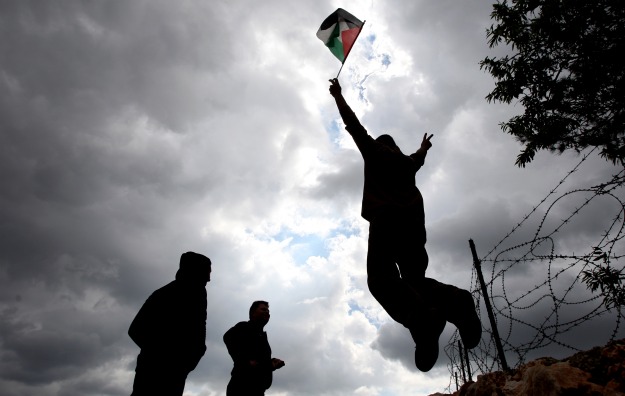UPDATES
Palestinians’ message quashed by media bias
July 15, 2011 | Daniel Meyerowitz-Katz

Writing in Foreign Policy, Rachel Shabi has interviewed a number of Palestinian activists and, unbeknownst to her, unearthed some startling and oft-overlooked views. Shabi found the activists to be disillusioned with the current Palestinian leadership and the direction in which they are headed – particularly on the upcoming UN statehood bid which, as they point out, is purely symbolic and will achieve few practical outcomes.
“September is a moment of truth for us,” says Diana Alzeer, a 23-year-old social activist from Ramallah who cites the revolution in Egypt as inspiration. “We see that a dictatorship of over 30 years was gone in two weeks. So why not for Palestinians?”
…”What’s the use of state if you can’t have the political rights that go with it?” asks Fadi Quran, a 23-year-old coordinator of Palestinian youth groups in Ramallah. “The demands of the new movement that is slowly but surely beginning to surface are freedom, justice and dignity — that both Palestinians and Israelis should have the same opportunities and the same rights, as equals.”
… “There will be no full sovereignty, no contiguous land, no Palestinian control over large swathes of the Palestinian population — nothing that you need to be state,” he says. “If there is a huge fuss and a declaration of statehood, a lot of Palestinians will say it is a big joke and that we are sick of people playing with our destiny.”
As the activists note, the current parties dominating Palestinian politics are out-of-touch and irrelevant.
Alzeer is part of a network of global Palestinian activists that form the “March15” movement — named for the date when thousands took to the streets of Gaza, the West Bank and Jersualem to call for Fatah and Hamas, the two dominant Palestinian parties, to end their bitter division. But the movement also proves that the Palestinian street is growing disillusioned with its long-dominant political factions. “That’s the big difference now,” says Alzeer. “We are not led by parties. Most of us don’t belong to any.”
…Young Palestinians now see more hope in the democracy movements sweeping the region, and draw parallels in their opposition to corrupt, unrepresentative politics and a stifling lack of opportunity. “This whole generation in the Arab world is more educated and its main goal has been to break away from the older generation and create something new for themselves,” Quran says. [Emphasis added]
Unfortunately, however, the message seems to have been lost in the medium. As Seth Mandel points out in Commentary, Shabi’s editorialising clings to the tired narrative that Israel is to blame for every woe that the Palestinians face and does not focus on the extremely important fact that young Palestinians recognise that their own leadership are denying them their human rights.
… Shabi tries to put as much of the blame on Israel as possible, but she has exposed a central flaw in the drive to create a Palestinian state: There is almost no support among the younger generations of Palestinians for the United States to enable the creation of a Mubarak-like dictatorship in the West Bank and Gaza.
Indeed, Shabi’s final quote seems to indicate that these activists recognise that the idea of statehood should be put on hold until their internal society has been significantly reformed.
“Non-violent protest won’t be political activities or just about the [Israeli separation] wall or settlements,” says Sami Awad, director of the Holy Land trust, a Bethlehem-based, non-profit organisation that works on Palestinian community building. “We want to expose the inequalities that Palestinians face — from water distribution to education to movement and freedom of worship. Until the equal rights of Palestinians are recognised, we will not be able to find a political solution,” says Awad. “For now, that can wait.
Sometimes, a standard line becomes so embedded in people’s consciousness that confirmation bias (interpreting information in a way that confirms one’s preconceptions) leads them to unquestioningly assume that it applies, no matter what the evidence in front of them. Shabi’s failure to recognise and support the internal criticism of the Palestinian regime is a glaring example. Unfortunately, she is far from the only journalist reporting on the issue who demonstrates this limiting approach.
Tags: Palestinians





